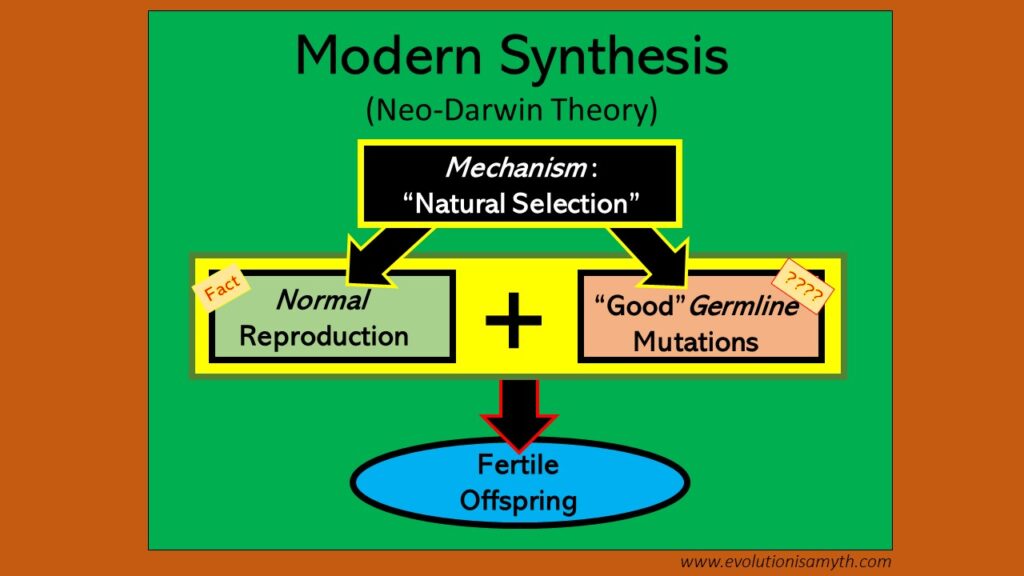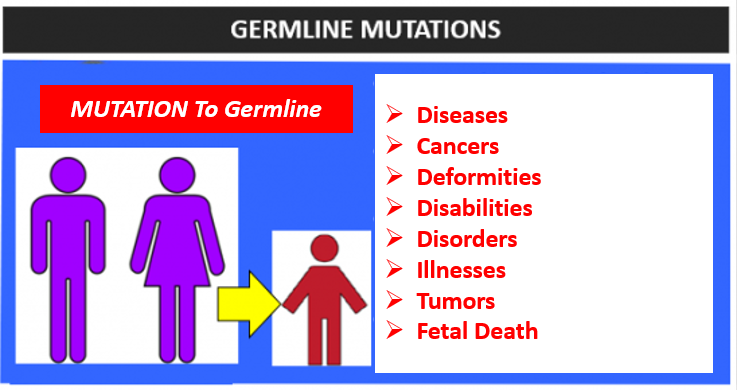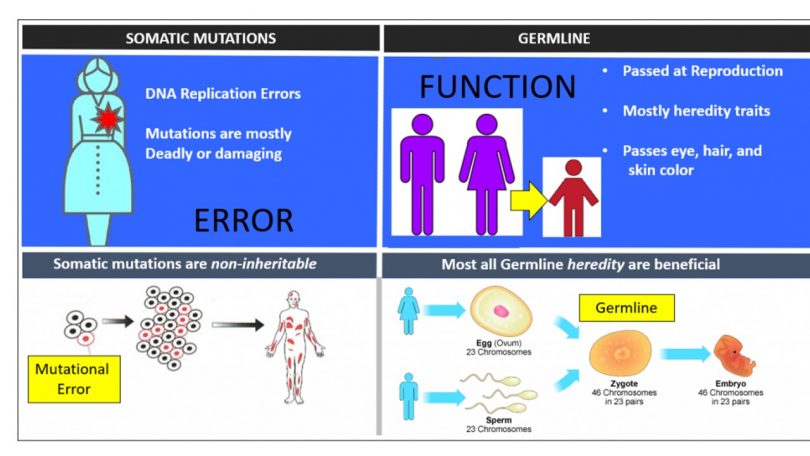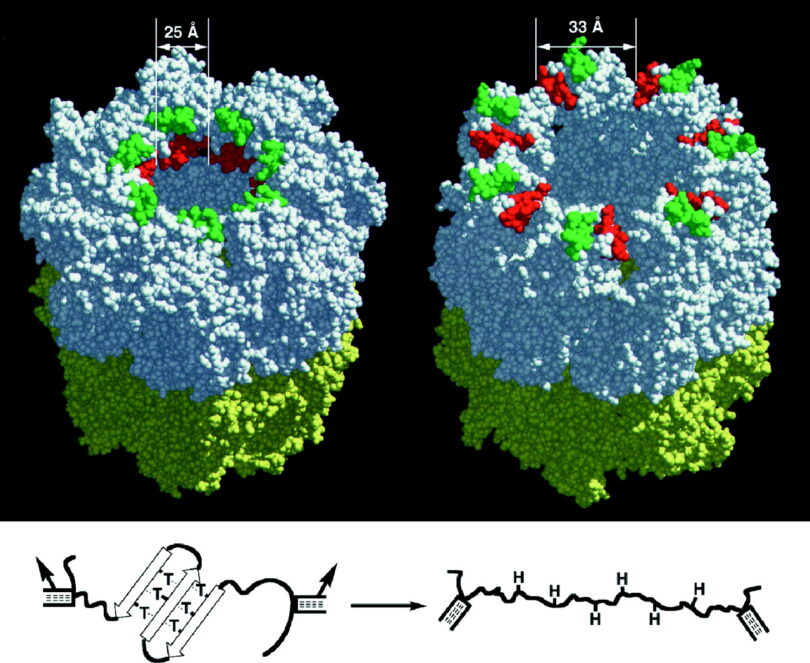Challenge: Can you utilize only scientific evidence to make an inference regarding mutations? An inference that concludes mutations are “Good”, “Neutral”, or “Bad”?
The Modern Synthesis, Neo-Darwinism, or The Universal Common Ancestry are all different names for the same Theory of Evolution (“UCA”). UCA relies upon “Natural Selection,” providing two characteristics: (1) Normal Reproduction by DNA allele frequencies that function as gene variants and not mutations; and (2) “Good” Germline Mutations that accumulate into subsequent generations as a fitness gain.

Let’s examine the genetic evidence of the Germline:
- Good Mutations: There is arguably a handful (20 or so) of anecdotal and subjective “good” lab-confirmed mutations, including the citrate-consuming bacteria in no oxygen mutation, The Milano A-1 low cholesterol mutation, The Sickle Cell mutation, and a few others. Finding good mutations is like finding a needle in a haystack.
- Neutral Mutations: Some mutations are silent-1. Somatic (body) mutations run around 33% of silent mutations. Silent or Neutral means the genetic copy error mutation provided no immediate, measurable benefit or harm. Recent discoveries have inferred that epigenetic functions correct and repair many copy mistakes. The body functions to avoid any mutations in many biological ways. Statistically, any second mutation hit to the same genetic sequence will be “bad” (degradative).
- Bad Mutations: Outside the handful of subjective and side-effect-ridden examples above proposed to be “good” mutations: ALL others are bad (degradative). Based on billions of dollars of ongoing research, empirical data empirically and clinically reveals genetic mutations directly cause vast suffering, illness, and death. Body (Somatic) mutations directly result in both common and rare tumors and cancers (likely all cancers are attributed to mutations)-2,3,4,5; Germline Mutations directly result in countless congenital (and many other) diseases and disorders-6; disabilities (including Autism)-7; deformities including birth defects-8 (including Down Syndrome)-9 and diseases (including Cystic Fibrosis)-10; and mass rates of fetal death-11.

Based on the evidence, claiming mutations as “good” is absurd. The preponderance of ALL genetic research data concludes that mutations are hazardous to life, whether at conception as a germline mutation or during our life as a somatic mutation. Mutations are bad.
The “problem” for UCA is it hinges entirely upon (1) both normal reproduction plus (2) many millions (really trillions) of “good” mutations beneficially accumulating in the generations as to transform all the variety of life as we find it today.
To imagine the improbability and super cosmic good fortune required of blind nature transmutating the first single-cell life form into a human being is incalculable. Additionally, time is not the hero either. Regardless of how many hundreds of millions of years are applied to solve the “problem,” mutations are not the answer. Mutations empirically and clinically are not “good.” Many consider “neutral” mutations as “good,” but this is absurd– they are silent and do nothing.
This phenomenon of mutation is observable in any genetic lab each day of the week. The conclusion is mutations of any kind are “bad.” As for “neutral” mutations, specialized nano-machinery enzymes correct or ignore these mutations. The vast preponderance of the evidence clearly shows that mutations are not “good” now. It is logical to presume that mutations were never “good” in the past.
Back to our challenge: By the preponderance of the evidence, applying only scientifically evidence-based and lab-verified data, and setting any philosophical and/or theological beliefs aside, what do you find? Are germline or any mutation: Good? Neutral? Bad? The answer is evident and apparent.
The preponderance of the genetic data directly and undeniably falsifies Neo-Darwinian Theory. (Sorry about that!)
1-Silent mutation – Definition and Examples – Biology-Online Dictionary
4- Table 3 Carney complex criteria
5- Table 4 Cowden syndrome criteria (National Comprehensive Cancer Network, 2013)
6- List of genetic disorders – Wikipedia
7- Autism spectrum disorder: MedlinePlus Genetics
8- NIH Birth Defect
9- Birth Defects: Causes and Statistics
10- Genetic and chromosomal conditions


